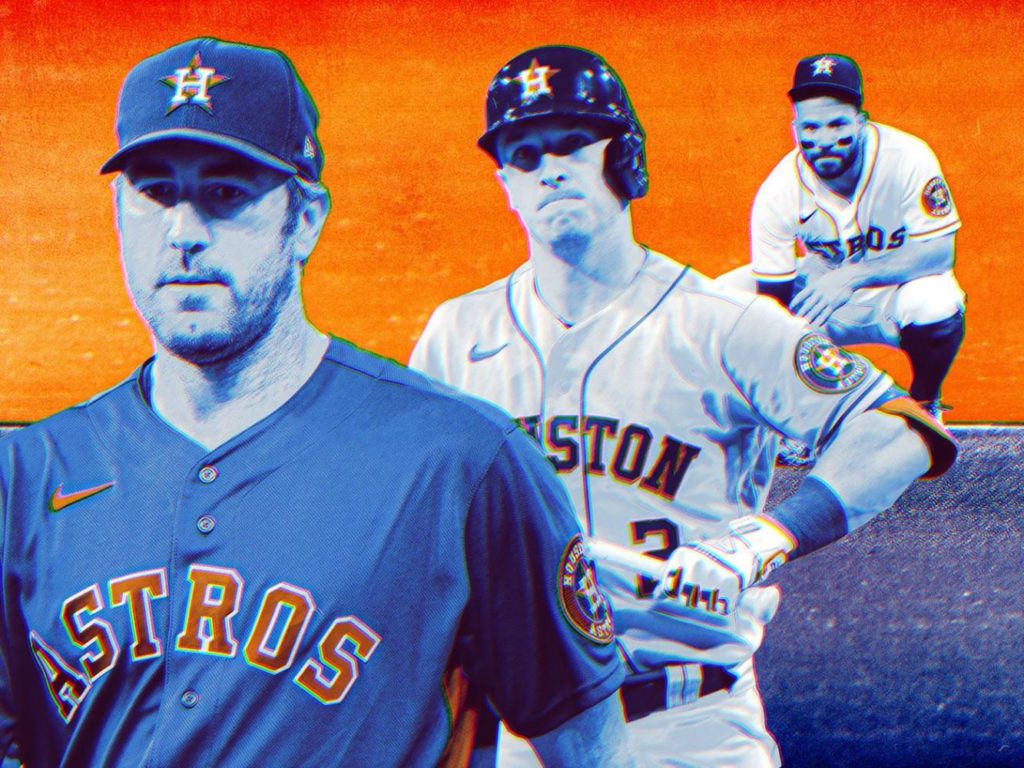For the second time in franchise history, the Houston Astros are World Series champions. It’s been a wild ride for the Astros, who in the last six seasons, have earned themselves five division titles, four World Series appearances and two titles to show for it. Given the fact that the Astros continue to remain amongst one of the strongest teams in the American League, if not the strongest team in baseball, are we watching baseball’s next dynasty unfold?
My take? The Astros should not be considered a dynasty—yet.
The Astros roster that took home this season’s World Series trophy differs considerably from the original group that started their reign of dominance. The only remaining players from the 2017 World Series to have played on the Astros this season are: Jose Altuve, Yuli Gurriel, Justin Verlander, Lance McCullers Jr., and Alex Bregman. However, a dynasty doesn’t necessarily need to retain all of their original players for success in the future.
Even though the Astros haven’t retained their original 2017 World Series core, losing out on key players over time such as Carlos Correa, George Springer, Charlie Morton and Dallas Kuechel, the fact that the Astros have been able to keep up their success while bringing in and developing new players is astounding.
The Astros lost out on Correa to free agency in the 2022 offseason and filled that gap with rookie shortstop Jeremy Pena, who turned out to be both the World Series and ALCS MVP. When George Springer left in free agency in 2021, it allowed for an even stronger duo in right fielder Kyle Tucker and slugger Yordan Alvarez to take his place in the outfield. Better yet, aside from Verlander and McCullers Jr. who have still remained on the roster since 2017, the Astros’ rotation seems to have gotten even stronger. The development of starting pitchers such as Framber Valdez, Luis Garcia and Jose Urquidy since 2017 has built up the Astros’ rotation to become one of the most dominant during the 2022 season.
It seems that although the present-day roster is considerably different than the one in 2017, the talent level of the team as a whole has increased significantly.
The fact is that the Astros seem to be built like a factory. They have lost out on several players over the last six seasons that have brought them success in the past, but they just seem to keep being replaced by younger, and possibly even better players for the future. The Astros should not be considered a dynasty right now, but they certainly have the tools, roster, management and development to remain strong postseason contenders and a feared competitor in the future.
Aside from the Astros being able to produce talent like a factory and the ability to be serious contenders yearly, the term “dynasty” still shouldn’t apply to them. If you are willing to count the almost certainly fraudulent championship in 2017 amidst the cheating scandal, the Astros have still only been able to bring home one other title since in 2022. That’s a six year period where the Astros have only won the World Series twice, and that’s just not dynasty material.
Perhaps another title we could use to describe the core the Astros have already built up is “American League Dynasty”, having won the AL West division five out of six years with four pennant titles, and making appearances in six ALCS series and four World Series but still only two titles to show for it.
But in no way should the Astros be compared to the Yankees’ dynasty from 1996-2001, who won four titles in six years or even the 2009-2014 San Fransisco Giants, who won three titles in six years. A core that might be most similar to where the Astros are right now are the 2006-2011 St. Louis Cardinals, who won two titles in a six year period.
In the end, the Astros have all of the tools and resources they need to keep building up their core and look to start baseball’s newest dynasty, but they aren’t there yet. Unless you count their title from 2017, it’s still only two titles in six years which isn’t enough to be considered dynasty material just yet.
